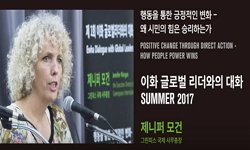This study attempts to reveal what was the confucian views of women which was formed through the Confucian Women`s Classics (女訓書) compiled by classical scholars (士大夫) in late Chosun society. The whole Chosun society was driven to Confucian...
http://chineseinput.net/에서 pinyin(병음)방식으로 중국어를 변환할 수 있습니다.
변환된 중국어를 복사하여 사용하시면 됩니다.
- 中文 을 입력하시려면 zhongwen을 입력하시고 space를누르시면됩니다.
- 北京 을 입력하시려면 beijing을 입력하시고 space를 누르시면 됩니다.

조선후기 사대부 여훈서(女訓書)에 나타난 여성상 형성에 대한 연구 = A Study on the Formation of the Image of Women in Confucian Women`s Classics(女訓書) compiled by Classical Scholars(土大夫) in Late Chosun
한글로보기https://www.riss.kr/link?id=A101981891
- 저자
- 발행기관
- 학술지명
- 권호사항
-
발행연도
2006
-
작성언어
-
- 주제어
-
KDC
300
-
등재정보
KCI등재
-
자료형태
학술저널
-
수록면
27-61(35쪽)
- 제공처
- 소장기관
-
0
상세조회 -
0
다운로드
부가정보
다국어 초록 (Multilingual Abstract)
This study attempts to reveal what was the confucian views of women which was formed through the Confucian Women`s Classics (女訓書) compiled by classical scholars (士大夫) in late Chosun society. The whole Chosun society was driven to Confucianization(儒敎化) internalizing Confucian values and norms to build the ideal society founded on confucianism. Through this process Chosun women became the object of edification. Confucian discourse about Chosun women was formed through the compilation of Confucian Women`s Classics or the books for edification(敎化書) and Churng-Pyo polcy(旌表政策) directed by nation. On this ground Confucian views of women settled down by classical scholars participating. The reason why Confucian Women`s Classics compiled by classical scholars appeared was related with their weakened control over country village after two wars(雨亂) and the change of family system caused by the application of Family Rites of Chu His (『朱子家禮』). Classical scholars coped with the change of time by emphasizing one`s family spirit and the unity of family. To be morally superior to country village people, family members needed to internalize Confucian norms. Within this situation, Confucian Women`s Classics were created to educate women for confucian norms. Confucian Women`s Classics compiled by classical scholars observed viewpoints of woman education that the suppression of a rebellion (治亂) depends on home administration (內治). The theory of home administration means that if woman is good, the suppression of a rebellion at home and nation would be successful. But if not, it would fail. After all, the suppression of a rebellion at home and nation depends on woman`s wisdom and good. Because of the above reasons, the goodness (善) of woman became the goal to achieve. The necessity of woman education is derived from this point. As Confucian education of women expected the stability at home and nation, Confucian Women`s Classics aimed at maintaining Confucianism patriarchism. Classical scholars paid attention to women norms demanded to maintain the order of Confucianism patriarchism in the situation of times. This comes to conclusion with three aspects. First, these books limited the lives of women in the husband`s house. This created the discourse of a married women who is no longer regarded as a family member of hers (出嫁外人). On this discourse, Confucian Women`s Classics compiled by classical scholars emphasized the virtue such as obedience (順從) that is needed to accomplish their lives and human relationships in the husband`s house. Second, to maintain Confucianism patriarchism, they emphasized the image of uncomplicated woman who concentrates her energies on managing a household. Especially in the case of poor classical scholars, women were positively requested to have the ability to manage of property and they relied on women for the existence and rise and decline of the family. The demand of able women (能婦) in late Chosun society means that Chosun society couldn`t be maintained by only virtuous women. Also this was the important opportunity for women to realize themselves in the limited surroundings, that is home. Thirdly, the jealousy (妬忌) of woman was prohibited. This could provide an exit for men who were in the strictly control of desire by Neo-Confucianisrn At the same time, this could be the safety device to prevent the collapse of family by demanding excessive patience from women in the name of womanly virtues (婦德).
동일학술지(권/호) 다른 논문
-
조선후기 사대부 女訓書에 나타난 여성상 형성에 대한 연구
- 韓國敎育史學會
- 김언순
- 2006
- KCI등재
-
조선시대 교육의 과정 및 실제에 대한 연구의 현황과 과제
- 韓國敎育史學會
- 박종배
- 2006
- KCI등재
-
- 韓國敎育史學會
- 이명실
- 2006
- KCI등재
-
- 韓國敎育史學會
- 이윤진
- 2006
- KCI등재




 KISS
KISS







